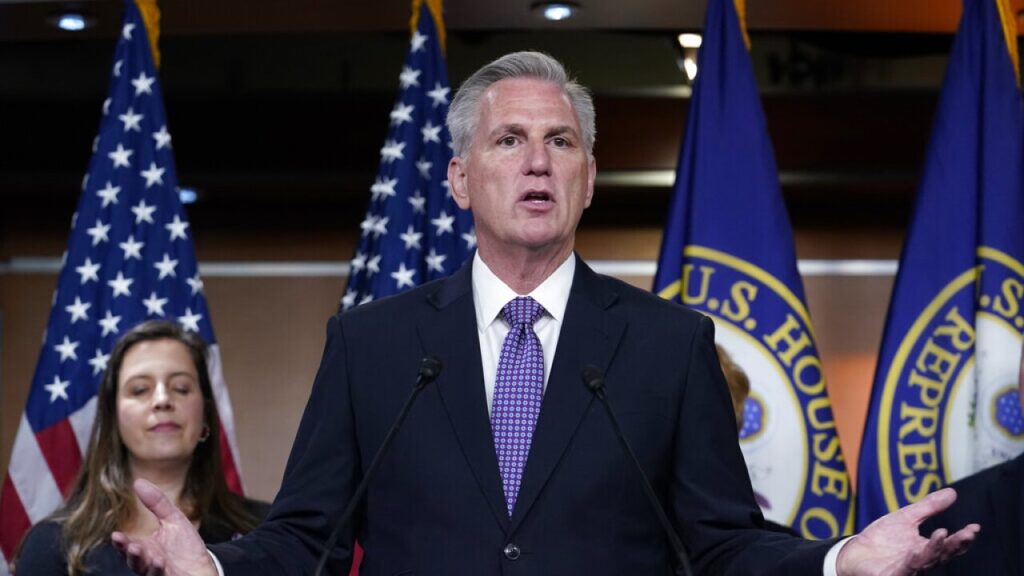Newsmatro

House Speaker Kevin McCarthy’s decision to initiate an impeachment inquiry into President Joe Biden has added a new layer of complexity to his already challenging task of securing funding for the federal government. McCarthy faces the formidable challenge of bridging the gap between the moderate wing of his conference and the conservative House Freedom Caucus, which has been pushing for substantial spending cuts and has even hinted at using a government shutdown as leverage.
The impeachment inquiry, ostensibly aimed at satisfying conservative members, now joins the list of priorities McCarthy must manage as Congress races against the clock to avert a government shutdown before the looming September 30 deadline. McCarthy contends that launching the inquiry is a “logical next step” in House Republicans’ ongoing investigation into unverified allegations of President Biden benefiting from his son Hunter’s foreign business dealings.
However, conservative lawmakers argue that the impeachment inquiry should not be conflated with the critical task of funding the government and achieving long-sought-after spending reductions.
Representative Byron Donalds of Florida, a member of the House Freedom Caucus, emphasized that these are distinct matters, stating, “There are two different things. We’re adults. We should be able to walk and chew gum at the same time.” He later added that Congress can investigate while simultaneously ensuring responsible government funding.
Others within the House Freedom Caucus echoed this sentiment. Representative Andrew Clyde of Georgia emphasized that the impeachment inquiry does not impact the calculus for conservatives involved in government funding negotiations. He stressed, “They have nothing to do with each other, absolutely nothing.”
Representative Matt Rosendale of Montana accused McCarthy of attempting to pressure members into supporting a spending package without the desired cuts. He labeled it “reckless government” and asserted that he would not be swayed by such tactics.
Another House Freedom Caucus member, Representative Andy Harris of Maryland, made it clear that the impeachment inquiry is not a distraction from the appropriations process, and he remains committed to seeking the spending cuts conservatives have been advocating for.
On the other hand, Representative Thomas Massie of Kentucky, a conservative who serves on the House Rules Committee, expressed more concern about the impeachment inquiry’s impact on their legislative agenda. He stated that while the inquiry would consume considerable bandwidth and public attention, he believes they can handle multiple tasks simultaneously.
Moderate GOP lawmakers within the party’s leadership defended the impeachment inquiry, emphasizing that it is unrelated to the ongoing government funding negotiations. They reject the notion that it serves as a distraction from their primary responsibilities.
Representative Kevin Hern of Oklahoma, chair of the Republican Study Committee, stated firmly, “We’re not using it as a distraction. This is a completely different parallel path to the spending side and funding the government.” He stressed that it does not hinder their job of funding the government.
Representative Marc Molinaro of New York, a vulnerable House Republican representing a district won by Biden in 2020, echoed the sentiment, emphasizing that they can manage both responsibilities simultaneously. He said, “We can walk and chew gum, and we ought to.”
As the political landscape continues to evolve, House Republicans find themselves navigating a complex balancing act between their legislative duties, internal party dynamics, and the evolving impeachment inquiry.